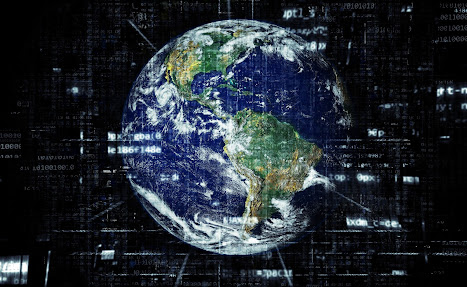What are the impacts of globalization in the context of Nepal?
What are the impacts of globalization in the context of Nepal?
Nepal adopted the policy of liberalization, privatization, and globalization after the restoration of multiparty democracy in the early 1990s as the forerunner of globalization in the south Asian region.
In 2004, when Nepal got its WTO membership, since then the globalization in Nepal has accelerated. Globalization can bring both opportunities and threats to any developing country, organization, or business and livelihood.
On one hand, some people are in favor of globalization, whereas, on the other hand, there are people against globalization. People who favor globalization argue that globalization can help the poor country's domestic businesses to reach the international market, which can help the citizens to increase their standard of living, however, people on the other side argue that globalization has only helped the western countries, not the poor ones. As we can see, today most Nepalese businesses and entrepreneurs have been struggling to compete with multinational companies because of their huge capital and investment. People against globalization seem to have a different opinion, for them globalization is a disease, not a medicine.
Some of the positive impacts of globalization in the context of Nepal are mentioned below:
- Globalization has increased the access to various goods and services available in the country at a lower price. For example, we can buy Chinese cellphone such as Oppo, Vivo, etc, which provides advanced features than that of Samsung and with reasonable prices. We don't have to rely on one product or service, as we can find various alternatives of product, so we can buy products that match our criteria.
- Globalization has increased the job opportunities in capital-scarce, labor-rich least developing countries like Nepal.
- Globalization has brought social-cultural transformation, where we can see as a result of globalization many countries have been celebrating each others culture, religion, and traditions peacefully for the past few decades.
- The free flow of information and technology has brought various opportunities. For example, we have an access to search engines, where we can find various reading materials to enhance our knowledge about a specific field. Similarly, with the help of technology, we can transfer our ideas and knowledge from one place to another and can connect beyond our borders.
- Emerging Regional integration such as SAARC, BIMSTEC, etc has become effective ways to overcome divisions that impede the flow of people, ideas, products and services, and are a constraint to economic growth, especially in the least developed countries like Nepal.
- Globalization has also increased the people's participation to show support and raise voices against injustice, inequality, and corruption. For example, when we see people of western countries fighting against inequality or corruption, it directly or indirectly impacts Nepal as well, as people here raise their voices against such activities to show participation.
- Globalization has enhanced the voice against global issues with help of social media many people are coming forward to raise their voices against issues like climate change, terrorism, racial discrimination, and so on.
- More helping hands than before can be seen in our day-to-day life, which in the past was limited only to local authorities. For example, when Nepal was hit by an earthquake different countries came together to help Nepal by providing health assistance, sanitation, providing food, and other essentials. Crowdfunding is another example where people can ask for donations via the internet to support their cause, and interested one can donate.
Along with some of the positive impacts, globalization also has some negative impacts and they are as follows:
- First and foremost, economic globalization has increased the gap between poor and rich countries. As a result, least developed countries like Nepal have seen domestic businesses struggling to thrive because of multinational corporation dominance.
- Globalization has also resulted in the exploitation of workers in developing countries, where the workers are paid just a tiny fraction of what would be paid to workers in developed nations.
- Another negative impact of globalization is it empowers multinational companies. For example, when multinational companies open up their businesses in the host country, they make sure to earn lots of profit and after work is finished, profits usually go back to their home nation, and the host nations are left with nothing in their hands.
- Due to globalization, cultural importance has been gradually vanishing in most countries, as a result of globalization, people are more attracted to western culture, their lifestyles, cuisines, and so on. For example, as we can see in today's context most youths in Nepal prefer to speak in English, visit pubs and clubs to have some drinks with their friends, watch Hollywood movies, wears western clothes at parties instead of their cultural dress.
- Political influence is another negative impact of globalization for Nepal. The major world powers tend to intervene in the internal affairs and influence the leaders of the respective nations to work for them and for their self-interest, which is not always in the favor of the citizens of these countries. For example, the Millennium challenge corporation (MCC) in Nepal has been on the verge of controversies since the day it was proposed.
- As a result of globalization, Nepal has faced the major problem of brain drain as skilled manpower like doctors, engineers are moving from their home country to abroad for better opportunities, which resulted in a lack of skilled manpower for the country.
- Globalization also results in the rapid circulation of diseases from one place to another. For example, the coronavirus has affected Nepal significantly.
- Globalization has also brought some major challenges around the globe, i.e. cyber attacks, communal riots, racial discrimination, environmental degradation, climate change, and so on.
Conclusion:



Comments
Post a Comment